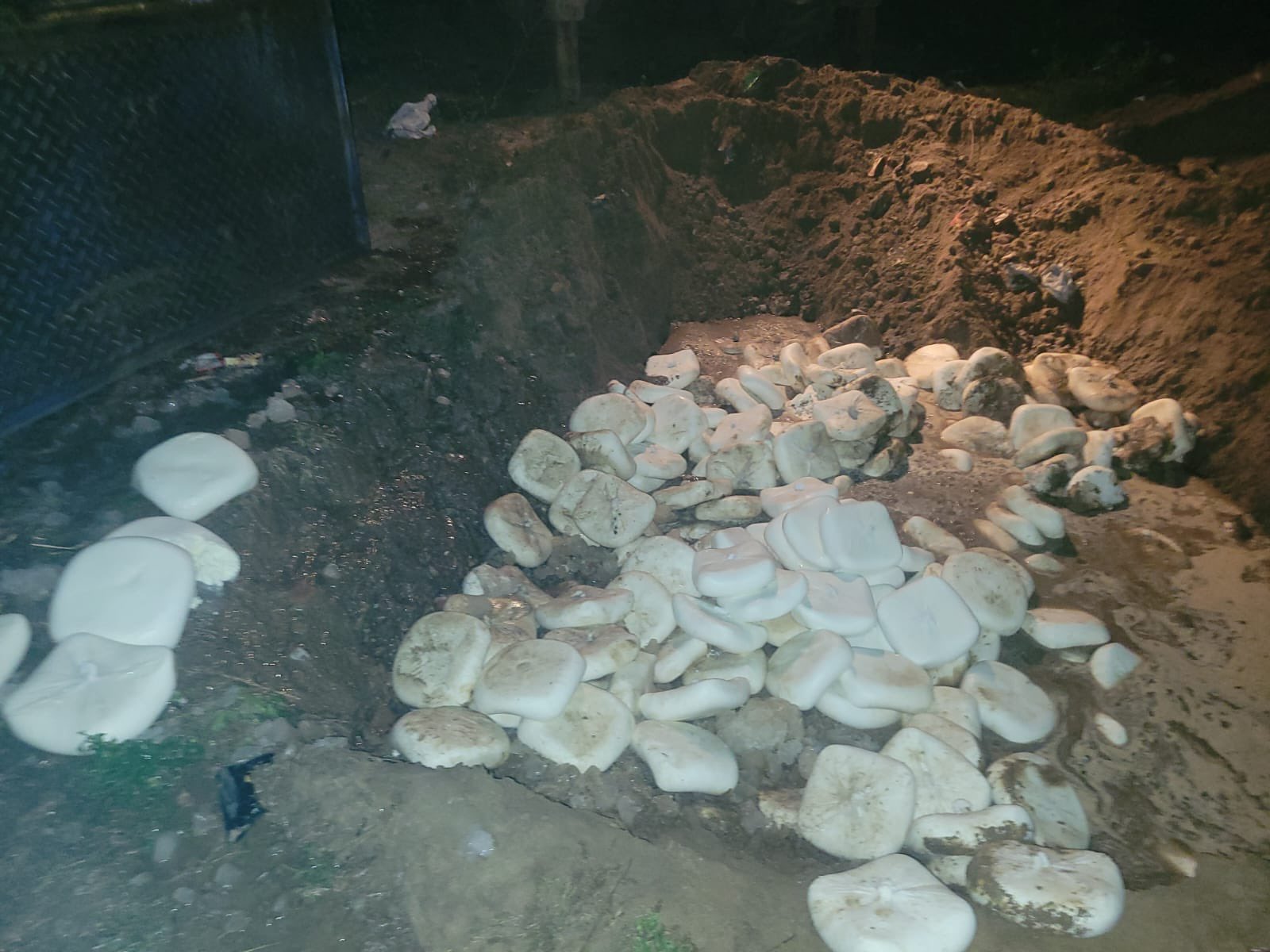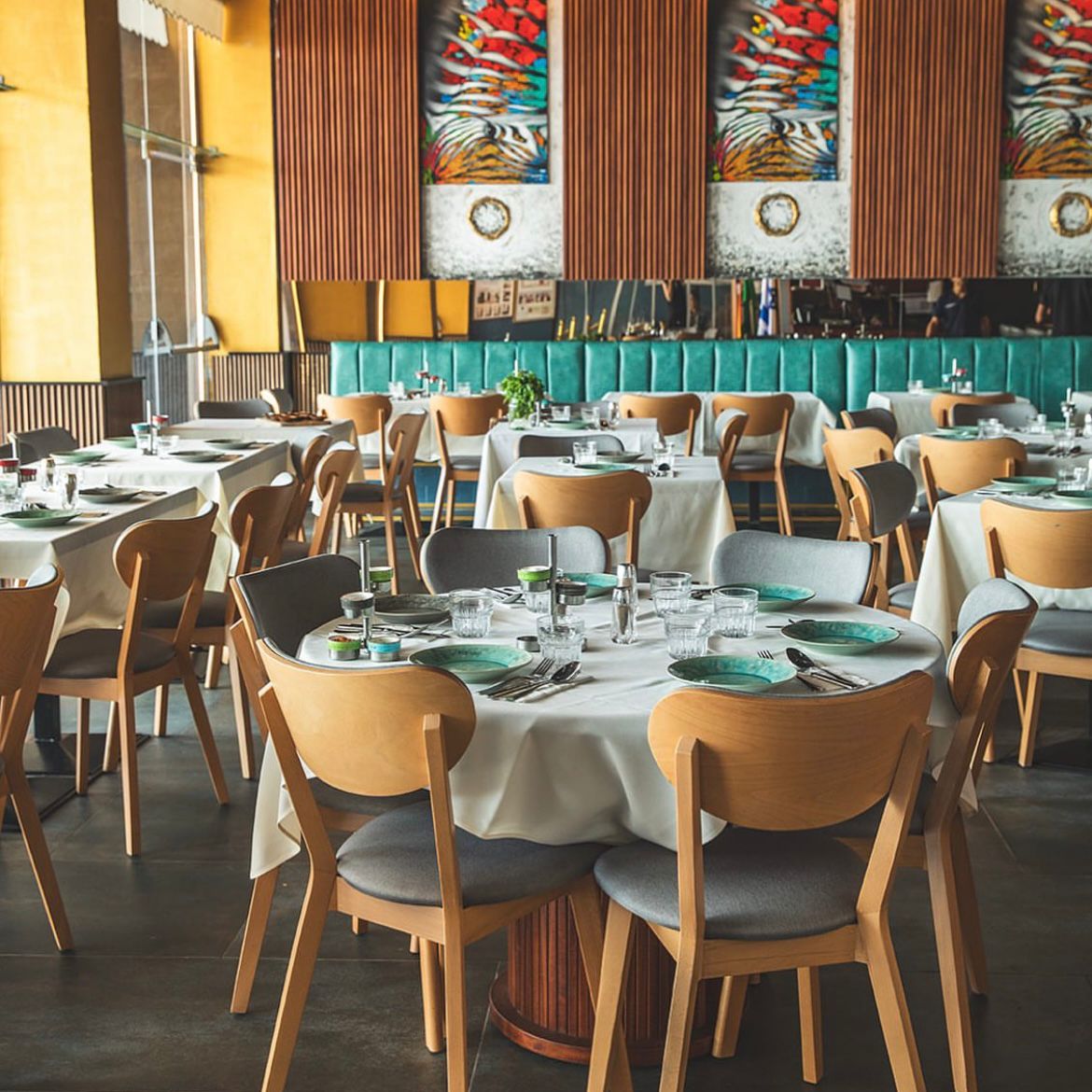There's an inherent sense of warmth associated with North Indian food. Warm flavours, warm colours, and warm ingredients are brought together in complex, hearty dishes often best enjoyed in cold weather. What typically galvanises their features is a variety of cooking techniques - each coaxing different attributes from the food and together creating a nuanced experience. Loya, a new restaurant at The Taj Mahal Palace Hotel in Mumbai, pays homage to these techniques and celebrates the diversity of dishes they have traditionally produced across the northern regions of India.
Loya was first established in The Taj Palace New Delhi in 2022 and the following year at Taj West End, Bengaluru. Its opening at The Taj Mahal Palace Hotel Mumbai marks this landmark's first new restaurant launch in two decades (Wasabi by Morimoto was the last and it opened in 2004). The kitchen is helmed by veteran Chef Rajesh Wadhwa, Loya's brand custodian. The extensive menu shines a spotlight on North Indian delicacies beyond the usual fare. Individually, each dish is an ode to time-honoured techniques, such as the dhungar (smoking), baghar (tempering), dum (slow cooking), sigdi (traditional stove using naturally occurring fuel) and the pounding of spices by hand. The serveware and ceramicware also celebrate regional handicrafts, including works by artisans from Muradabad and Khurja. Each piece of the handmade metal cutlery is unique.

Photo Credit: Loya
Situated on the lobby level, stepping into Loya is aesthetically transportive - and the blend of contemporary convenience and historical motifs plays out well. The interior design hints at the bazaars of a glorious past. Around the multi-level seating, there are grand arches, exquisite niches, copper lanterns, colourful awnings, evocative murals and more. The bar is sculpted with natural rock, highlighted by a striking waterfall that aims to bring natural Himalayan springs to mind. The furniture is made with logwood and embellished with copper.

Photo Credit: Loya
True to its mission, Loya doesn't offer the same-old kebabs, tikkas and chaats as appetisers. Instead, it invites you to discover new favourites - and that's exactly what we did. We began with the Chulai Kebab, which were wholesome, earthy skewers of red amaranth leaves coated with puffed amaranth seeds. The Paneer Teen Mirch featured deftly crafted 'rolls' of paneer enhanced with achari flavours and kali mirch. Two bites in, and we were won over - we weren't missing the staple paneer tikka at all! Among the non-vegetarian options, we liked the juicy Timbri Jheenga, served with a special bhang jeera chutney (we later paired this chutney with other dishes too).

Photo Credit: Loya
Next, we tasted the trio of Loya Chaat, comprising Aloo Tokri Chaat, Tamatar Thechwani, and Chatpata Kand (Elephant Yam). We savoured each element: the crunchy potato tokri filled with dahi, channa, bhalla, and more; the deep-fried yam elevated with spicy and tart chutneys; and the slightly tangy thechwani scooped up with mathri and puri pieces. Like the other starters, we noted how the chaats here were not necessarily the most popular - but their novelty was more than welcome. We also experienced Dal Ki Chaat, which includes crisps (made with besan and wheat), onion, tomato, chutneys, etc. Assembled tableside, the chef explains each item as it's added and finishes off the chaat with piping hot dal from a vessel right in front of you. The effect is pleasantly theatrical and excitement builds as you watch.
For those who eat seafood, there's another kind of theatrical delicacy you don't want to miss out on. One of Loya's signatures is Jwala Macchi - generous portions of white snapper cooked in mustard oil and imbued with the magic of "special spice rub". When it arrived at our table, it was topped with flaming cognac (another nod to the warmth we mentioned earlier). The fish oozed deliciousness with every bite - it's a treat we still find ourselves thinking about and craving.

Photo Credit: Loya
As for drinks, Loya's cocktail program, Paanch, has been inspired by the significance of the number '5'. It cites symbols such as the five rivers of the North as well as the five senses. More specifically, there are five tenets of the philosophy at Loya around which the cocktails are structured. They are Harmony, Experimentation, Authenticity, Reverence, and The Spirit. Signature drinks include the Gulab (Rose-cardamom vodka, fresh pineapple juice, lemon citrus-rose mist), Loya Manhattan (Indian single malt, rye whisky, house amaro, sweet vermouth, bitters, spiced cherry) and Sparkling Saffron (Sparkling wine, gin, saffron syrup, saffron, orange air), among other innovative concoctions. There's also a good range of zero-proof options. Don't miss the opportunity to try the Tamarind-Fennel Soda. It's a uniquely tangy mix of cranberry, in-house tamarind-fennel syrup, lemon soda and orange essence.

Photo Credit: Loya
Moving to the main course, we started with Attari Murgh, named after a railway station in Punjab that's the last stop in this country before the route crosses over to Pakistan. The dish acknowledges this divide, inviting guests to literally "break down" boundaries by using a small hammer to break a webbed edible mesh placed over the curry. In terms of taste, this tomato-based chicken curry is slightly reminiscent of the ubiquitous North Indian butter chicken, but it does manage to delight in its own way. Another highlight was the Kangra Khodiya Gosht, which stands out for a different reason. This Pahadi-style mutton curry is flavoured with charred walnut ink!
We savoured the curries with Kala Moti Gucchi Pulao and several Indian flatbreads, including treats like the Gola Paratha and Amritsari Wadi Kulcha. Among the vegetarian mains, we relished a medley of leafy greens presented in the Kafuli Saag. Following tradition, it is prepared in an iron pot as this method is said to enhance the overall iron content of the dish. For a different kind of gravy, we recommend the Sepu Wadi - made by submerging urad dal dumpling in a creamy tomato-yoghurt base. We also loved Dal Jhakiya, Dal Panch Ratani and Harsil Ki Chemmi. There's no dal makhani here and we were grateful for it. These dal dishes may not be what one usually associates with such opulent surroundings. However, there's a quiet sense of luxury to be found in their simplicity and the chance to enjoy carefully sourced ingredients.

Photo Credit: Loya
You can also see this in a dessert like the Gud-Ke-Maan, a beautifully subtle badam kheer made using the chef's own grandmother's recipe. There's no rice, vermicelli or any other textural ingredient in the milk base - just shreds of almonds that teased our palette. The plating has a special token - but we don't want to reveal everything before your visit. Nevertheless, we cannot help mentioning the presentation of another dessert: the Badana Pearls, which came in an ornate jewellery box. It opened to reveal a scrumptious arrangement of rabri and saffron foam on a bed of sweet boondi topped with almond slices.
The name "Loya" has been derived from a Pashtun term referring to "gathering for a feast." And thus, our dining experience showed us that it's not just about the literal warmth of the food here - it's also about the emotional warmth found in sharing a meal together.
Address: Loya, lobby level of The Taj Mahal Palace Hotel, Apollo Bandar, Colaba, Mumbai.
About Toshita SahniToshita is fuelled by wordplay, wanderlust, wonderment and Alliteration. When she is not blissfully contemplating her next meal, she enjoys reading novels and roaming around the city.









